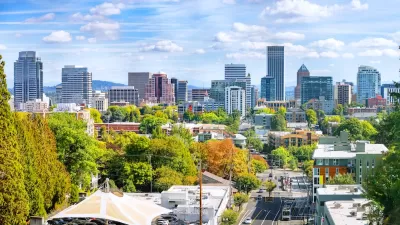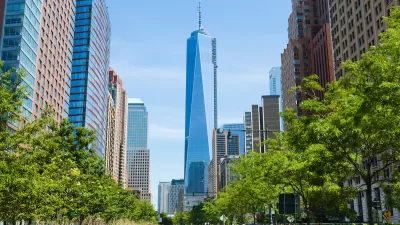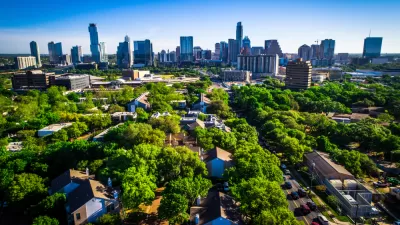Most of the reasons street trees are sometimes unpopular with residents are either untrue or can be mitigated.

There's a surprising amount of resistance to the ideas of street trees planted in sidewalks, according to an article by Catalina Jaramillo:
Trees aren’t generally controversial. They usually look nice, they provide shade and improve the air and water quality. Scientists say they even make people happier.
But when it comes to planting a tree on the street, many Philadelphians say — nuh uh, not in my sidewalk.
The reasoning for this anti-tree vitriol is fairly easily debunked, according to Jaramillo.
The article walks through a series of myths about street trees, providing evidence to the contrary:
- MYTH 1: ‘There’s few trees in lower-income neighborhoods because residents don’t want them’
- MYTH 2: ‘Trees get into pipes’
- MYTH 3: ‘Tree planting and maintenance is prohibitively expensive’
- MYTH 4: ‘Trees destroy sidewalks’
As noted by Jaramillo, sometimes there are risks and liabilities associated with street trees, and sometimes the trees chosen for planting on streets are the wrong trees for the job. But still, trees can and should be far more beneficial than harmful, and it's far more worth the effort of having trees than not to have any trees at all.
FULL STORY: Not in my sidewalk: Debunking Philly tree myths

Alabama: Trump Terminates Settlements for Black Communities Harmed By Raw Sewage
Trump deemed the landmark civil rights agreement “illegal DEI and environmental justice policy.”

Planetizen Federal Action Tracker
A weekly monitor of how Trump’s orders and actions are impacting planners and planning in America.

Why Should We Subsidize Public Transportation?
Many public transit agencies face financial stress due to rising costs, declining fare revenue, and declining subsidies. Transit advocates must provide a strong business case for increasing public transit funding.

Understanding Road Diets
An explainer from Momentum highlights the advantages of reducing vehicle lanes in favor of more bike, transit, and pedestrian infrastructure.

New California Law Regulates Warehouse Pollution
A new law tightens building and emissions regulations for large distribution warehouses to mitigate air pollution and traffic in surrounding communities.

Phoenix Announces Opening Date for Light Rail Extension
The South Central extension will connect South Phoenix to downtown and other major hubs starting on June 7.
Urban Design for Planners 1: Software Tools
This six-course series explores essential urban design concepts using open source software and equips planners with the tools they need to participate fully in the urban design process.
Planning for Universal Design
Learn the tools for implementing Universal Design in planning regulations.
Caltrans
Smith Gee Studio
Institute for Housing and Urban Development Studies (IHS)
City of Grandview
Harvard GSD Executive Education
Toledo-Lucas County Plan Commissions
Salt Lake City
NYU Wagner Graduate School of Public Service





























